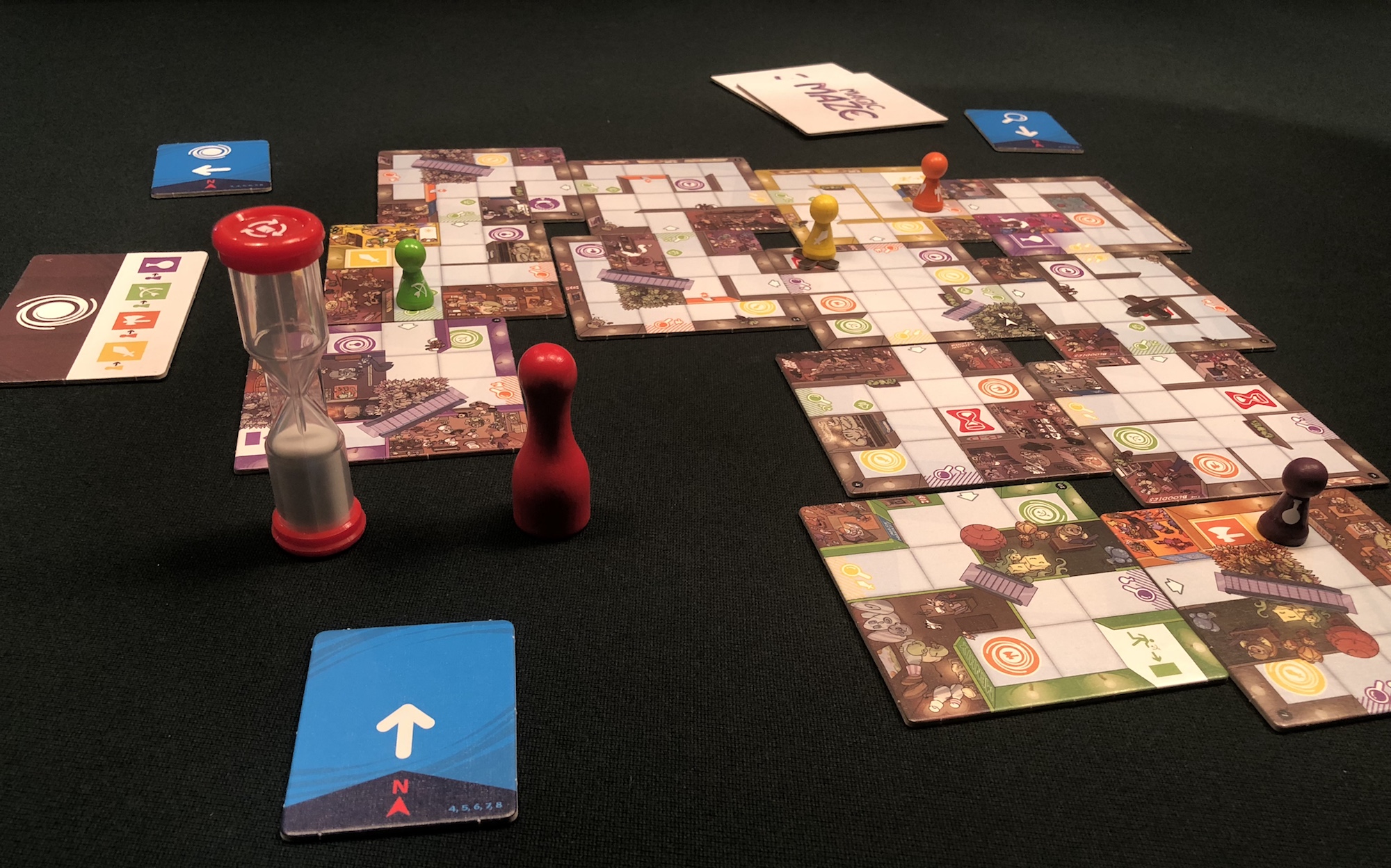When I'm not hard at work building web applications, you can often find me learning, playing, teaching, or creating tabletop games. Recently I've been playing Magic Maze by Kasper Lapp quite a bit, and it has led me to some thoughts on how we work as a team from day to day.
In Magic Maze, the players work cooperatively together against the clock. They all win, or they all lose. The goal of the game is to guide four characters through a maze printed on tiles. The characters can move in all four cardinal directions, go up and down escalators, explore through doorways to reveal more tiles, and even teleport straight to places in the maze, and need to use these actions to each get to their own destination.

Easy so far. But the genius of the game comes from these rules:
- All the players can move any character they want, without taking turns.
- Each player can only do one thing (say, move north, or explore through doorways).
- No talking allowed.
Suddenly we have a recipe for disaster. Ashley sees a great way to get from point A to point B, which starts with a single step east... but only Sam can move east, and he's looking at another character entirely. Mike can get the yellow pawn to its destination in one move, but only if Haley notices this and teleports yellow into the right position. And nobody is paying attention to the timer, almost out of sand and losing the game.
So what lessons from this game can we apply to our working lives?
Managing Attention
When focused on moving the green pawn, you are oblivious to the needs of the yellow pawn. That's not what's in front of you at the moment. But this attitude can block other people from achieving their own goals. Sometimes we need to accept distractions in order for others to keep working efficiently, even if it slows us down in the short term. And other times, we need to reserve some quiet time to work without distraction, to solve more difficult problems.
Receptiveness to Other Approaches
Players often visualize a path in their head, and implicitly rule out other possible ways to solve the maze. If two people are seeing different solutions to the same problem, they end up deadlocked and can't move forward.
Communication is an obvious solution to the real-world equivalent here, but even so there are often unspoken assumptions of the right way to do things that are much better said aloud, and perhaps rethought. We need to learn from one another, and be open to the idea that there might be a better way to attack the issue at hand.
The Big Picture
Game after game of Magic Maze is lost when players are doing well at solving the maze, but nobody thinks to check the timer, silently running out, and the spaces in the maze that allow flipping that timer over go completely unused.
In our daily work, it's important to pop our heads out of the weeds from time to time and look at the big picture. Am I making progress on this issue? Is it the best use of my time? Am I breaking ten things by introducing this feature in this way? Our project management tools help us do this, but reviewing each others' work and keeping each other accountable goes much further.
Making Decisions
Magic Maze does offer one means of communication: a big red chunk of wood. If you need someone's attention, you can pick up the red pawn and bang it in front of another player to tell them to Do Something. But, of course, you can't tell them what to do, so this moment can be paralyzing.
Theodore Roosevelt said: "In any moment of decision, the best thing you can do is the right thing, the next best thing is the wrong thing, and the worst thing you can do is nothing."
This applies here. It's better to just try something, and undo it if necessary, then to stand shell-shocked and frustrate everyone else. This strategy works as we're solving difficult architectural problems in our applications, too. Of course, we don't want to break everything all the time, so to empower people to have this exploratory, brave approach, we use tools like Git for version control and use levels of staging environments for testing, so doing the "wrong thing" has limited impact as we keep searching for the "right thing."
Still Learning
Every time I come back to this puzzle, or watch people working on it, I learn something new about people and how we work together. What have your hobbies taught you about being a better worker, a better problem solver, or a better communicator?
